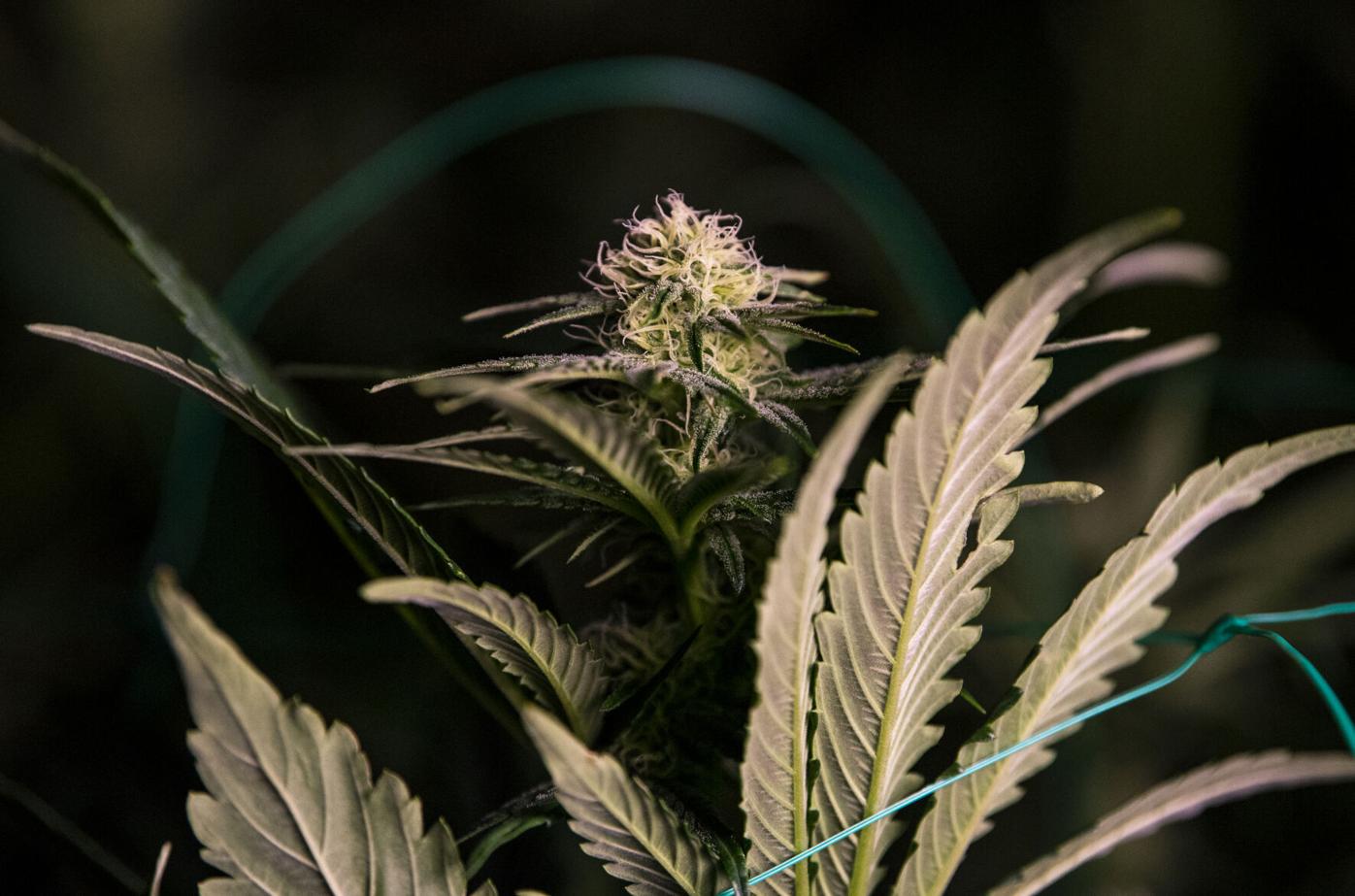Colorado Springs City Council vote extends split with mayor on how to spend marijuana tax revenue

the gazette file
The Colorado Springs City Council and Mayor Yemi Mobolade continue to split over how to budget the incoming sales tax revenue from recreational marijuana sales.
In 2022, Colorado Springs voters established a 5% sales tax for the future sale of retail marijuana in the city. The approved ballot measure limited the use of the tax revenue to three areas: public safety, mental health services and post-traumatic stress disorder treatment for veterans.
Even with only three categories to spend the funds in, the Mayor’s Office and the City Council have taken strongly divergent views on how to split the tax revenue. Mobolade has suggested keeping the money with city departments to deal with the current budget shortfalls, while the council voted Tuesday for an approach that leaned more on public-private partnerships.
Colorado Springs City Council overrides mayor's veto on retail marijuana tax
The resolution passed by the City Council Tuesday recommended that half of the tax revenue be provided to the Downtown Partnership to support the Clean and Safe Pilot Program which recently started. The other half of the tax revenue would be provided specifically to post-traumatic stress disorder treatment programs.
Councilmember Nancy Henjum said the funding had become a “political football” out of step with the impact of the estimated $1.4 million in sales tax revenue that marijuana could bring in this year.
“We’re not necessarily putting the city first and working together as the two parts of our legislative branches and as leaders,” Henjum said.
The council recommendation passed 5-4 with votes from Council President Lynette Crow-Iverson, Tom Bailey, Roland Rainey, Brian Risley and Brandy Williams. Rainey and Williams said that the proposal was a way to start the conversation with a focus on areas that did not receive enough support from the city.
“I would hope the mayor is going to be thinking through not just the words of this resolution but other programming that we could this funding go to,” Rainey said.
Colorado Springs City Council, Mayor Mobolade at odds over marijuana tax revenues
In July, Mobolade issued his first mayoral veto to override a measure setting up a grant application process with the City Council for the marijuana tax revenue. The council voted 6-3 to override the veto and begin setting up the grant process.
Mobolade outlined his preferred split in an email sent to the council on July 28 and reiterated it during the budget retreat last Thursday. Mobolade said that keeping the funding focused on the city’s public-safety needs was the most financially responsible path.
“While it’s new, and therefore naturally draws focus, we cannot let a small line item distract us from our broader fiscal responsibilities,” Mobolade said in the email.
Mobolade suggested that 60% of the funding be used for direct needs of the Police Department. The specific uses would include the enforcement for marijuana-related crimes related to the newly legalized sales, along with additional police drones and hiring for the 911 Call Center.
The remaining 40% of the funds would be used for mental health services, primarily through the Homeless Outreach Program and the Community Response Team. Mobolade’s email said that other entities such as the Clean and Safe pilot program would be able to apply for a portion of that funding.
Downtown Partnership aims to make Colorado Springs 'clean and safe'
The council’s recommendation Tuesday did not mention any specific PTSD treatments programs that could receive the funds or detail how the city would determine which programs to support. Williams said that conversation would continue over the next few months.
During the council meeting, Williams called the marijuana revenue “potentially one-time funds” that made sense for temporary projects. The comment immediately caught the ear of Henjum, who said the only way that could happen was with a ballot initiative to reverse the 2024 vote that legalized retail marijuana sales. Henjum said that route seemed like an unpopular route for the city to pursue.
“I think we heard pretty loudly and clearly this year that the people were not happy with this council about the positions we took on marijuana,” Henjum said.
The official 2026 budget, including the marijuana sales tax and over $900 million in other spending, will be proposed by the Mayor’s Office at the beginning of October. It will then go back to the council for amendments.
Manitou Springs looks to halve marijuana sales tax







